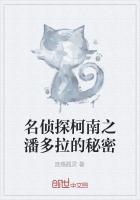The love-season is the carnival of egoism, and it brings the touchstone to our natures. I speak of love, not the mask, and not of the flutings upon the theme of love, but of the passion; a flame having, like our mortality, death in it as well as life, that may or may not be lasting. Applied to Sir Willoughby, as to thousands of civilized males, the touchstone found him requiring to be dealt with by his betrothed as an original savage. She was required to play incessantly on the first reclaiming chord which led our ancestral satyr to the measures of the dance, the threading of the maze, and the setting conformably to his partner before it was accorded to him to spin her with both hands and a chirrup of his frisky heels. To keep him in awe and hold him enchained, there are things she must never do, dare never say, must not think. She must be cloistral. Now, strange and awful though it be to hear, women perceive this requirement of them in the spirit of the man; they perceive, too, and it may be gratefully, that they address their performances less to the taming of the green and prankish monsieur of the forest than to the pacification of a voracious aesthetic gluttony, craving them insatiably, through all the tenses, with shrieks of the lamentable letter "I" for their purity. Whether they see that it has its foundation in the sensual, and distinguish the ultra-refined but lineally great-grandson of the Hoof in this vast and dainty exacting appetite is uncertain. They probably do not; the more the damage; for in the appeasement of the glutton they have to practise much simulation; they are in their way losers like their ancient mothers. It is the palpable and material of them still which they are tempted to flourish, wherewith to invite and allay pursuit: a condition under which the spiritual, wherein their hope lies, languishes. The capaciously strong in soul among women will ultimately detect an infinite grossness in the demand for purity infinite, spotless bloom. Earlier or later they see they have been victims of the singular Egoist, have worn a mask of ignorance to be named innocent, have turned themselves into market produce for his delight, and have really abandoned the commodity in ministering to the lust for it, suffered themselves to be dragged ages back in playing upon the fleshly innocence of happy accident to gratify his jealous greed of possession, when it should have been their task to set the soul above the fairest fortune and the gift of strength in women beyond ornamental whiteness. Are they not of nature warriors, like men?--men's mates to bear them heroes instead of puppets? But the devouring male Egoist prefers them as inanimate overwrought polished pure metal precious vessels, fresh from the hands of the artificer, for him to walk away with hugging, call all his own, drink of, and fill and drink of, and forget that he stole them.
This running off on a by-road is no deviation from Sir Willoughby Patterne and Miss Clara Middleton. He, a fairly intelligent man, and very sensitive, was blinded to what was going on within her visibly enough, by her production of the article he demanded of her ***. He had to leave the fair young lady to ride to his county-town, and his design was to conduct her through the covert of a group of laurels, there to revel in her soft confusion. She resisted; nay, resolutely returned to the lawn-sward. He contrasted her with Constantia in the amorous time, and rejoiced in his disappointment. He saw the goddess Modesty guarding Purity; and one would be bold to say that he did not hear the Precepts, Purity's aged grannams maternal and paternal, cawing approval of her over their munching gums. And if you ask whether a man, sensitive and a lover, can be so blinded, you are condemned to re-peruse the foregoing paragraph.
Miss Middleton was not sufficiently instructed in the position of her *** to know that she had plunged herself in the thick of the strife of one of their great battles. Her personal position, however, was instilling knowledge rapidly, as a disease in the frame teaches us what we are and have to contend with. Could she marry this man? He was evidently manageable. Could she condescend to the use of arts in managing him to obtain a placable life?--a horror of swampy flatness! So vividly did the sight of that dead heaven over an unvarying level earth swim on her fancy, that she shut her eyes in angry exclusion of it as if it were outside, assailing her; and she nearly stumbled upon young Crossjay.
"Oh, have I hurt you?" he cried.
"No," said she, "it was my fault. Lead me somewhere away from everybody."















